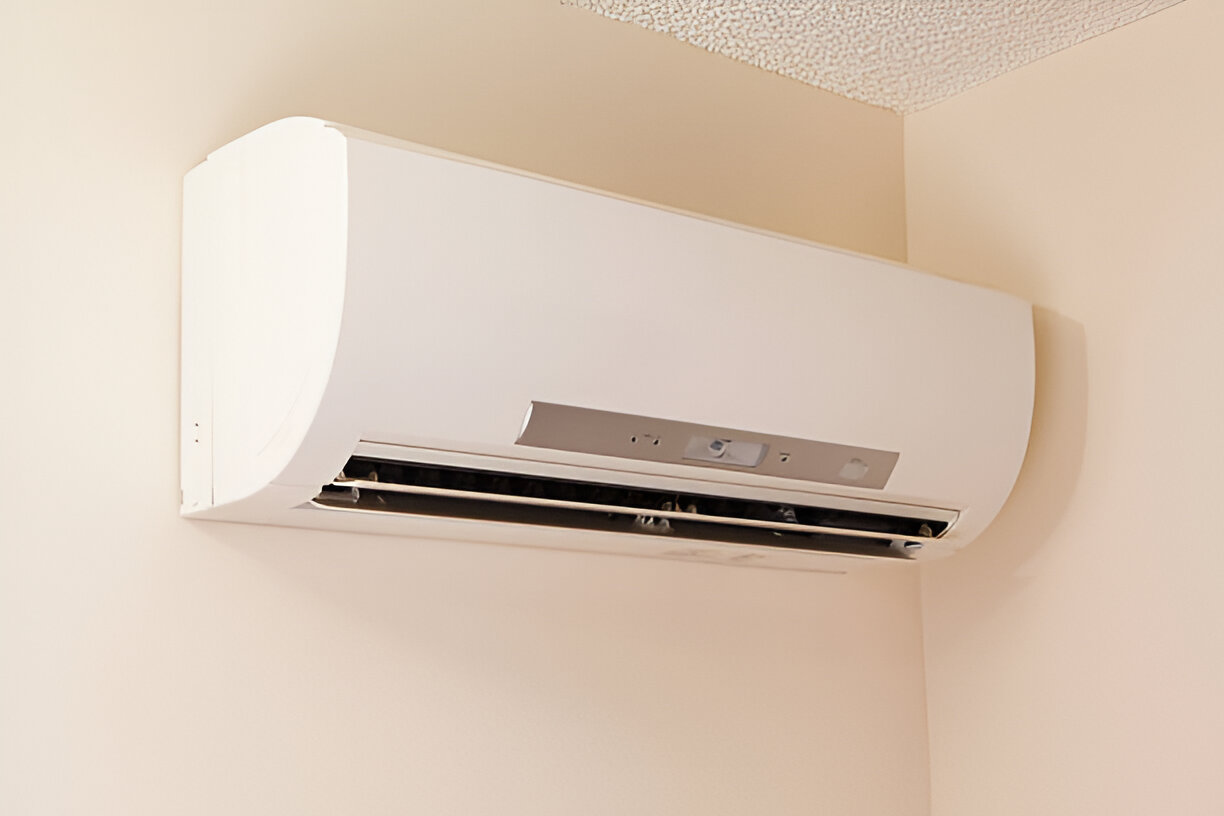Mini Split HVAC Services in Houston, TX
Mini Split HVAC Services in Houston, TX
Mini split HVAC systems are an efficient, flexible way to cool and heat Houston homes where ductwork is impractical or where zoned comfort is desired. With Houston’s long, humid summers and mild winters, properly selected and installed mini splits deliver strong dehumidification, consistent comfort, and energy savings when matched to the local climate and building specifics. This page explains comprehensive mini split HVAC services available in Houston, TX, including system selection, professional installation, maintenance, diagnostics and repairs, replacement options, efficiency recommendations, warranty and financing basics, service coverage, and frequently asked questions.

Why mini splits make sense for Houston homes
- Effective dehumidification reduces sticky indoor conditions common in Houston’s coastal and bayou neighborhoods.
- Zoned control lowers energy use by conditioning only occupied spaces.
- Ductless installation avoids mold and leakage risks associated with poorly insulated or leaky ducts in older Houston houses.
- Corrosion-resistant options and strategic siting help systems last longer in salt‑air areas near Galveston and the Gulf.
Common mini split types and service needs
- Single-zone ductless mini split: ideal for garages, additions, or single rooms.
- Multi-zone systems: serve multiple rooms with one outdoor condensing unit and several indoor heads.
- Ducted mini-splits (compact air handlers): used where a limited duct run is feasible.
- Heat pump mini-splits: provide heating and cooling year-round for energy-efficient HVAC in Houston’s mild winters.
Typical service categories:
- System selection and consultation
- Professional installation and commissioning
- Routine maintenance plans and seasonal tune-ups
- Diagnostics and troubleshooting
- Repairs and component replacement
- Full system replacement and upgrades
- Energy-efficiency optimization and retrofits
- Warranty guidance and financing options
System selection and consultation
Selection begins with a site survey and load calculation tailored to Houston’s climate. Important considerations include:
- Correct sizing using Manual J-style load calculations to avoid short-cycling in Houston’s high cooling loads.
- Number and type of indoor units based on room use, orientation (solar gain), and ceiling height.
- Corrosion-resistant outdoor units or protective coatings for coastal properties.
- Integration with indoor air quality features and dehumidification capacity for high humidity neighborhoods.A proper consultation balances upfront cost, seasonal performance, and long-term efficiency.
Professional installation process
A professional installation typically follows these steps:
- Site inspection and final equipment selection.
- Permitting and compliance with local codes (Houston/Harris County).
- Mounting outdoor condensing unit on a stable pad or bracketed wall mount for flood-prone areas.
- Indoor head placement for optimal airflow, occupant comfort, and condensate routing.
- Routing and brazing of refrigerant line sets, electrical connections, and condensate drain lines.
- Evacuation and vacuuming of the refrigerant circuit, proper charging, and leak testing.
- System startup, calibration, and performance verification under Houston’s humidity and temperature conditions.
- Homeowner orientation on controls, modes, and seasonal care.
Diagnostics and common repairs
Common Houston mini split issues and how they’re diagnosed:
- Refrigerant leaks: detected by pressure testing and visual inspection; repaired by locating leak, brazing, and recharging.
- Poor cooling or noisy operation: checked for incorrect charge, airflow obstructions, or failing compressors/fans.
- Water leaks or overflowing pans: often caused by clogged condensate drains or improper drain routing.
- Frozen indoor coils: typically due to low refrigerant, blocked airflow, or control malfunction.
- Electrical/communication faults: diagnosed with system codes and meter checks; may require PCB or inverter replacement.Repairs focus on restoring performance, sealing leaks, replacing failed components, and confirming safe, efficient operation.
Replacement options and upgrade paths
When repair is not cost-effective, consider replacement options:
- Right-sized single- or multi-zone mini split with inverter technology for better part-load efficiency.
- Upgrading to higher SEER/HSPF-rated units tailored to Houston’s cooling-dominant needs.
- Adding dedicated dehumidification modules or hybrid systems if humidity control is a priority.
- Selecting coastal-rated equipment or applying protective coatings for extended lifespan in seaside areas.
Energy-efficiency recommendations for Houston
- Choose inverter-driven compressors and high SEER/HSPF ratings for lower energy use during Houston’s prolonged cooling season.
- Properly size units to avoid short cycling and poor dehumidification.
- Use zoning and smart controls to reduce runtime in unused rooms.
- Regular maintenance keeps coils clean and airflow optimal, preserving efficiency.
- Explore local utility rebates and incentive programs for high-efficiency equipment when available.
Warranty and financing basics
- Manufacturer warranties typically cover compressors and major components for a set period; registration is often required to maintain full coverage.
- Labor warranties can vary; ask about scope, duration, and transferability when purchasing.
- Financing options commonly available include HVAC financing plans, energy-efficiency loans, and deferred payment programs through third-party lenders. Terms and eligibility depend on credit and lender policies.
- Document all warranty and maintenance actions to support future claims.
Scheduling and service areas
Services are structured to meet demand across the Greater Houston region, including Harris County and neighboring communities, with attention to local permitting and building code requirements. Special considerations are made for coastal neighborhoods where corrosion prevention and flood elevation are important.
Maintenance tips to extend system life
- Clean or replace filters monthly to protect coils and maintain airflow in humid Houston conditions.
- Keep outdoor units free from debris and vegetation, especially during pollen season and after storms.
- Inspect condensate drains and pans regularly to prevent overflow and water damage.
- Schedule professional tune-ups at least annually, with spring checks before peak cooling season and fall inspections for heating performance.
Frequently asked questions (FAQs)
Q: Are mini splits suitable for older Houston homes without ductwork?A: Yes. Mini splits are ideal for homes without ducts or where adding ductwork would be invasive. Proper sizing and placement ensure comfort and humidity control.
Q: How often should Houston mini splits be serviced?A: At minimum once per year for a professional tune-up; twice annually is recommended for properties with high use or coastal exposure.
Q: Can mini splits handle Houston humidity?A: Properly sized and installed mini splits with correct operating strategies dehumidify effectively. In some high‑humidity spaces, added dehumidification or oversizing for latent load may be advisable.
Q: How long does an installation take?A: Typical single-zone installs can be completed in a day; multi-zone systems often require 1–3 days depending on complexity and permitting.
Q: When is replacement better than repair?A: Replacement is often the better option when the compressor has failed, the system is older than 10–15 years, or repair costs approach a significant percentage of replacement cost.
Q: What warranty distinctions should I know?A: Distinguish between manufacturer component warranties and labor warranties. Registration, qualified installation, and timely maintenance are often conditions for full coverage.
Q: Are there special considerations for coastal Houston homes?A: Yes. Choose corrosion-resistant units or protective coatings, elevate outdoor units where flooding is a concern, and schedule more frequent inspections.
This content provides the practical, detailed guidance Houston homeowners need when evaluating, installing, maintaining, or replacing mini split HVAC systems. The right system selection, professional installation, and ongoing care are essential to maximize comfort, efficiency, and equipment lifespan in Houston’s climate.
Customer Testimonials
Our customers praise our exceptional service and attention to detail, consistently exceeding expectations.































































